Christ Church is a member of A Rocha UK’s Eco Church movement launched in 2016 and which now exceeds 4,500 local churches learning how to care for creation in all they do.
We are proud to say that we have achieved the Silver Eco Church award in recognition of our efforts to care for God’s earth in each of the following areas:
Worship and teaching
Management of buildings and land
Community and global engagement
Lifestyle
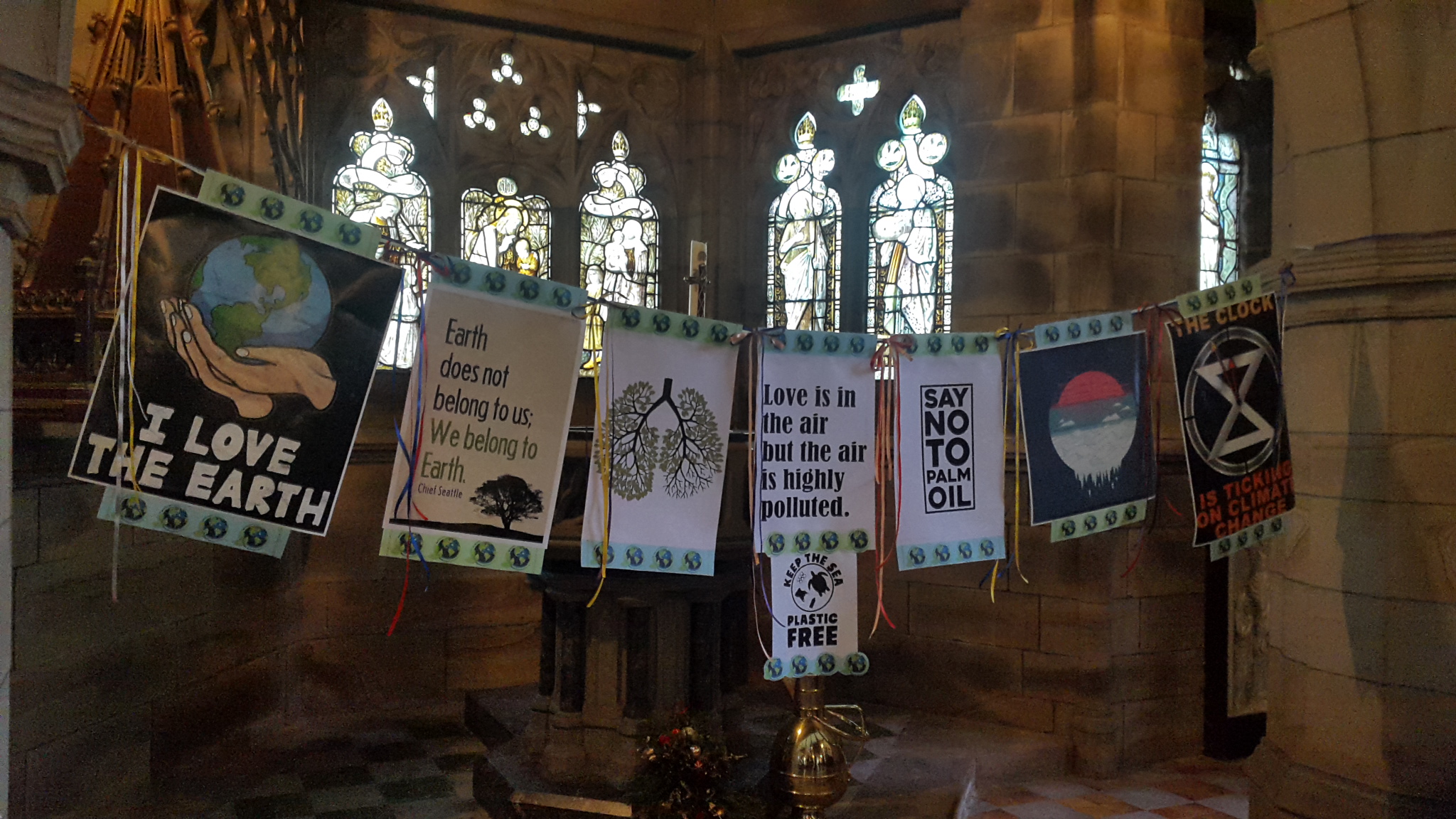
Christchurch is
An Environmental Champion under Blackburn Diocese’s Caring for Creation initiative
A Fairtrade Place of Worship
A supporter of the Climate Coalition’s Declaration calling for action on Climate Change
A member of LancsCAN (Climate Action Network)
Since September 2016 we have been working to make our church more environmentally friendly and to encourage our congregation and local community to reduce their carbon footprint.
We have a theme for each month and an ‘Action for the week’ published in our Newsletter and on our Facebook page. See all our actions for the current month. The themes and actions are also displayed on the Eco Poster in church.
Regular activities include
- Sermons on Caring for Creation and the urgency for action on climate change
- Prayers covering the natural environment and those suffering the disastrous effects of climate change and for governments to take urgent action to achieve net zero targets.
- Monthly posters at the back of church showing results of research on different themes
- Sharing weekly actions on achieving a sustainable lifestyle online and in newsletters
We have had
- A survey in church to identify the take-up of green lifestyles
- A green resolutions fair to share successes and difficulties.
- A presentation on carbon footprint reduction open to other churches which led to achievable actions being identified from The Drawdown report.
- A Creation Sunday service at which copies of a Greta Thunberg speech were distributed.
- Presentations by the Eco Group, our climate change banner displayed and a summary of eco activities distributed.
- A talk about the work of our chosen charity Money for Madagascar.
- An interactive presentation entitled ‘Step into the future with Electric’ which covered options for using Electric cars and virtual travel.
- A presentation entitled ‘What happens to our plastic recycling and why’.
- An exchange visit with parishes at Hurst Green and Great Mitton.
- A presentation about Closing Loops and Composting entitled ‘From Trash to Treasure’.
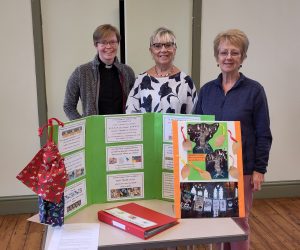
Future actions will include
We will continue to
- Participate in Climate Sunday services
- Arrange presentations on relevant topics of interest
- Keep the congregation informed of any environmental initiatives and campaigns
- Highlight climate crisis concerns and actions that can be taken.
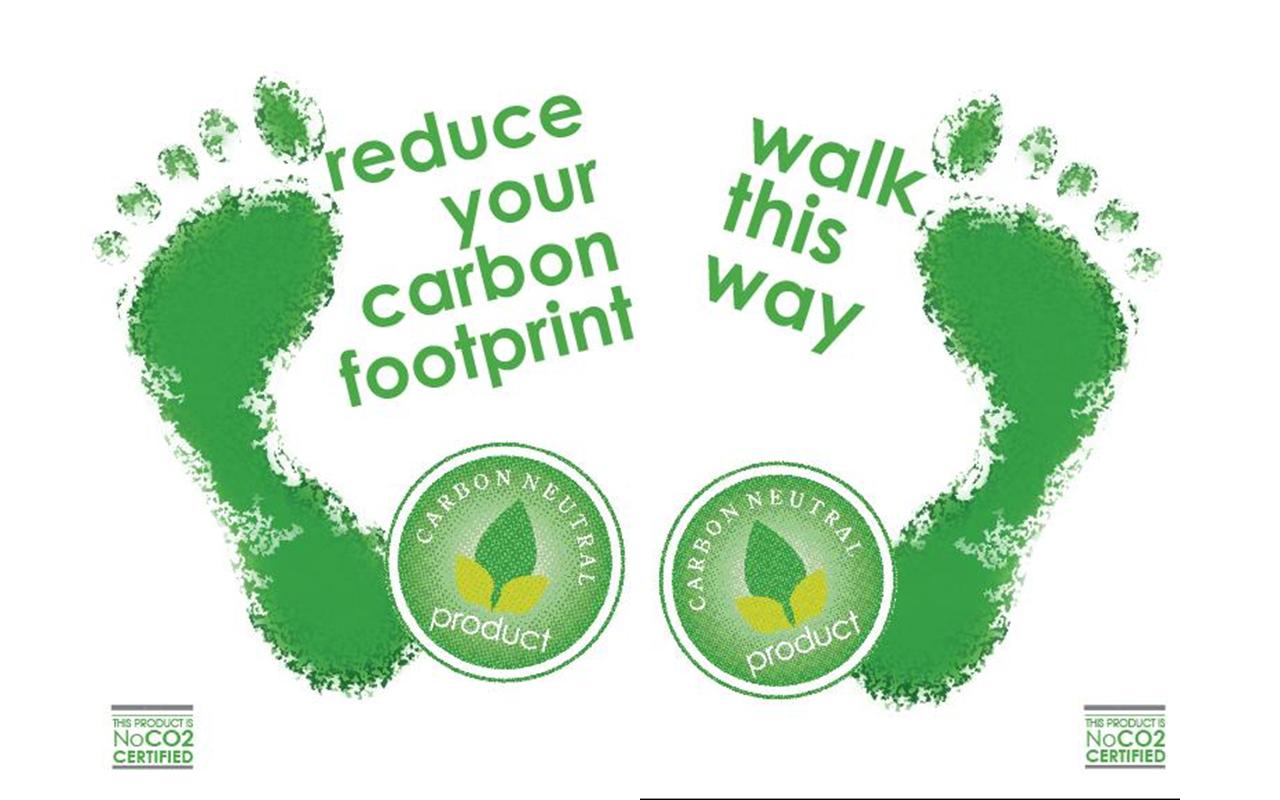
MANAGEMENT OF BUILDINGS AND LAND
We have
- Had an energy assessment carried out
- Fitted LED light bulbs in the nave
- Thanks to the diocesan quick wins Net Zero grant we have also fitted LED lights in the Sanctuary, Baptistry and church hall.
- Fitted some draft excluders in church
- Installed a bike rack outside church
- Provided a recycling unit in the Church, Church Hall and Vestry
- Set up a gardening group to help manage the church grounds
- Planted insect and bee friendly plants and installed bird feeders
- Sown wildflower seeds on a sunny slope in the church grounds
- Created a habitat log pile and installed a hedgehog house.
- Held a ‘Count on Nature Survey’ as part of Great Big Green Week
- Planted saplings to create a new hedgerow
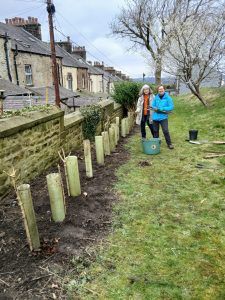

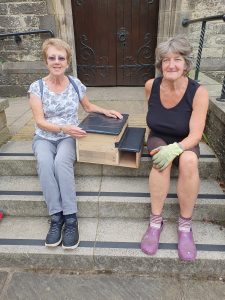
We will continue to
- Manage the church garden and improve it for wildlife
- Compost church flowers and other suitable cuttings
- Chip pruned woody material for garden mulch
- Seek ways to improve insulation within the church building and methods and funding for more sustainable sources of heating.
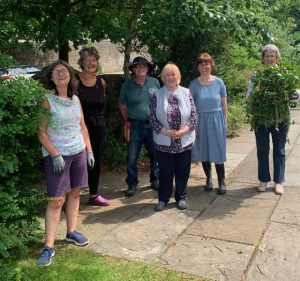
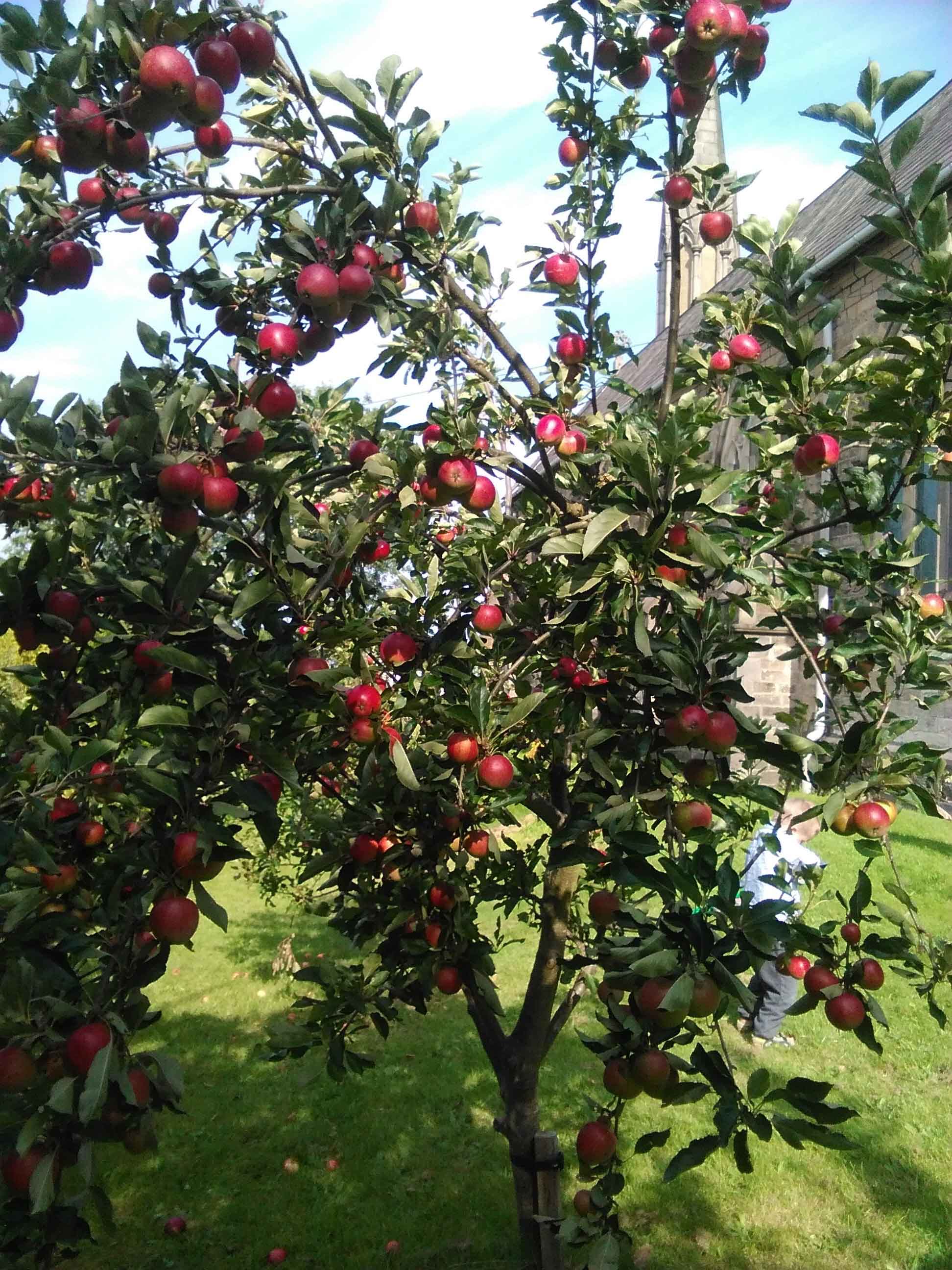 |
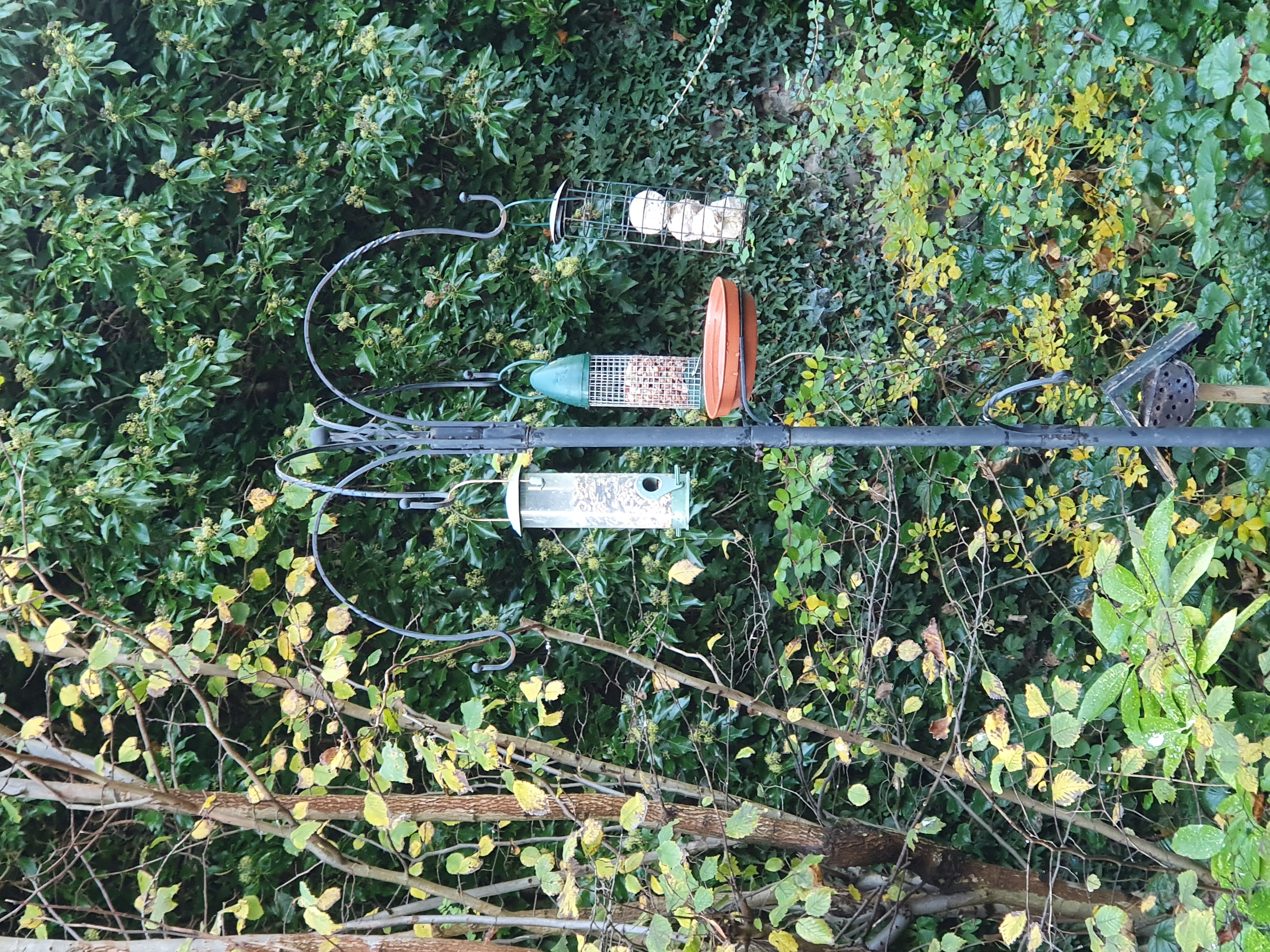 |
Christ Church Garden Management Plan October 2024
1. Introduction and background
The church and adjacent church hall are situated within a relative small area of land comprising managed flower beds and a mown lawn to the front and side of the church, and grassy slopes linking the upper and lower levels at the rear and to one side where there is an ashes plot below the cenotaph. There are also several trees along the boundary next to walls most of which are covered by TPOs and which are in need of some work. Planting to the rear includes apple trees, a privet hedge, sycamore saplings and several shrubs that have received little attention in recent years.
The flower beds and shrubs facing Wyresdale Road are kept in reasonable order by the Church gardening group on a monthly basis. However this depends on the availability of a small group of volunteers and the weather, and the work carried out is very much dependent on each person’s preference. Occasionally bigger jobs are undertaken by stronger members of the team or congregation. In addition to general weeding and pruning, efforts have also been made to make the garden more wildlife friendly including the addition of insect friendly plants, a habitat log pile, a hedgehog house and more recently planting of native wildflowers at the edge of the flower beds. A new bird feeding station has been relocated to the open lawn area and is kept supplied by another church member. A gardener is employed to keep the mown areas in check but this again is dependent on his availability.
In order to develop a more organized approach to the management of church grounds professional advice has been sought and a management plan drawn up which takes account of various church functions, safety and neighbour relations. It also provides for the Eco Church objectives of managing the area, not covered by the above constraints, for the benefit of wildlife, in order to meet one of A Rocha’s Eco Church targets. The Management Plan includes
- Grassland management and mowing regimes
- Trees and hedge management
- Planted areas along the boundary with Wyresdale Road
- General management of other areas of the grounds
- Delivery of church garden management plan
2. Grassland management and mowing regimes
Different mowing regimes are needed to accommodate the various functions of the church grounds from close mown turf through to longer grassland on the slopes and path edges. These are described below and annotated on a attached plan.
Area A
Function: Part of the public ‘shop-front’ of the church to show our care and stewardship to passers by and a level accessible space that is used for church events, children’s play, and for visitors to enjoy the view of the city.
Objective: To be kept close mown for easy access for church related and social activities.
Planned mowing regime: Between February and October mowing to take place twice a month which will still allow clover to grow. NB. This might vary depending on the weather and growth.
Area B
Function: Easy access around the church grounds and to enable access to the ashes plot and keep this in good order due to pastoral sensitivity.
Objective: Creation of a mown path from Area A around the back of the church building to the hall and returning on lower level to the steps near to Tarbett Street. The path is to be kept mown to guide public access and provide a clear demarcation between areas of longer more biodiverse grassland.
Planned mowing regime: Between February and October, 1.5m width to be mown twice a month. NB This might vary depending on weather and growth.
Area C a) Beyond the two benches upper level
Function: Part of the public ‘shop-front’ of the church and to show our care and stewardship to passers by.
Objective: Generally beyond the two benches and all other areas not covered by mowing regimes for A and B to be managed as meadow grass to increase diversity of ground flora for the benefit of insects, birds and small mammals.
Planned Mowing regime: Between February to August once a month. Possibly to exclude ‘No mow May’.
Area C b) slopes to be strimmed in Autumn when plants have dropped their seed to allow development of wild grasses and flowers.
Area D Slope near to the cenotaph
Function: Part of the public ‘shop-front’ of the church to show our care and stewardship to passers by, to improve biodiversity and to keep the War Memorial in good order due to pastoral sensitivity. .
Objective: To further develop the wildflower area. This area has previously been sown with wildflower seeds, which has been partially successful. There is evidence of narrow leaved plantain, yellow hay rattle, Devils- bit Scabious and Crested dog’s tail, a stiff looking perennial grass which is a food plant of caterpillars of butterfly species.
Planned Management:
a) Consideration was given to undertake further work to get rid of rank grasses which will necessitate repetition of the work carried out two years ago and reseeding with yellow hay rattle. This process will need to be repeated several times. The section to the steps could be incorporated into this regime. Future mowing of that area would need to take account of the crocus bulbs planted there.
b) It was decided to leave the grass for this year to see what develops and to strim in the autumn when the plants have dropped their seed.
3. Trees and hedge management
3a) Mature Trees
Description: There are several mature trees in the garden including three to the rear of the church hall which have branches overhanging the neighbouring property. There is also an Ash near to Tarbett Street which is suffering from Ash die back. Four of the trees are covered by TPOs. which prevents work being carried out without consent from the City Council.
Objective: Stewardship of mature trees which affect neighbouring properties, reduce damage to boundary walls and security issues and to increase light and improve flora biodiversity.
3b) Other smaller trees, saplings and hedgerow
Description: There are also trees and saplings alongside the church and boundary walls which will cause future problems. In places they also create security issues. A section of privet has honey fungus which will affect the rest of the hedge if not addressed.
Objective: To prevent future damage to boundary and church walls and ongoing issues with neighbouring properties and the spread of honey fungus
Planned Management:
Advice has been obtained from a recommended Tree Surgeon on specific trees that need pruning or total removal.
Lancaster City Council’s Tree Preservation Officer has visited and agreed to the reduction of the large sycamore. There is no agreement to remove the Ash in the immediate future.
A List B Faculty has been obtained and which requires replanting of suitable native trees.
Quotes are to be obtained for the following work
- 10% reduction of a large sycamore covered by TPO as above.
- Removal of three birch trees adjacent to a neighbour’s property
- Removal of established sycamore and horse chestnut saplings throughout the grounds.
- Removal of a sycamore bush, holly and elders which are growing very close to a retaining wall.
- Removal of a leaning whitebeam and an alder near the hall.
- Removal of privet hedge stumps to prevent the spread of honey fungus along a hedge line.
- Removal of dead apple tree
- To include chipping and removal of wood, plus eco-plugging the sycamore stumps.
Delivery
Work to be undertaken as soon as possible subject to approval by PCC and funding being identified or becoming available.
3c) Apple trees
Function: To benefit the environment, provide a source of free fruit for the local community and improve the productiveness of the land.
Objective: To keep trees in good health and maximize fruit production which is made into jams and chutneys for sale as part of the Apple festival and to encourage others by example.
Planned Management:
Trees need to be pruned when dormant between November and early March. One tree is dead and needs to be removed and replaced.
3d) Future trees
It is the intention to introduce three new small growing trees which will be good for biodiversity. Suggestions include Hawthorn, Apple and Hazel.
Delivery
It is hoped that new trees might be provided free as whip transplants or by donations from the gardening group.
4. Planted areas along the boundary with Wyresdale Road
Function: Part of the public ‘shop-front’ of the church to welcome guests and show our care and stewardship to passers by. To improve the biodiversity at habitat edges.
Description: In general the existing shrubs are appropriate and good for wildlife. However some shrubs are quite tall and screen the church from the road which contributes to security issues. There is also a Birch ‘hedge’ growing along side wall to Wyresdale Road and birch saplings growing in flower beds.
Vegetation that has grown in the stoned up area fronting flower beds has be partly removed and 50 native wildflowers plugs planted. The remaining section which includes some invasive species is still to be worked on.
The area near the hall is covered mainly with Chinese Wineberry providing good ground cover and also habitat for blackbirds nesting.
Planned Management: in addition to general weeding and additional planting, shrubs of varying sizes need regular pruning and cutting back in particular the Chinese Wineberry which has received little attention for some years. The ‘ Birch ‘hedge’ is in need of reduction and the birch saplings growing in flower beds need removing.
A list of existing plants, shrubs and trees along with a schedule of pruning times is under preparation.
Delivery
Some of the above work can be carried out by the gardening group as part of the monthly sessions. It is anticipated that additional gardening days will be necessary over Winter into Spring to carry out all the pruning necessary.
5. General Management of other areas of the grounds
Bird feeder:
Description: this has been provided and maintained by a member of the congregation who is not part of the gardening group. Some members of the congregation contribute towards the cost of bird seed. The bird seed used is now of the no grow variety which will not undermine the objective of more diverse rich grassland developing. Any seed dispersed by the birds feeding is quickly eaten by the pigeons.
Objective: To provide food and water to support and encourage visiting birds to the church yard as a witness to our care for creation.
Plan: The area under the feeder is to be kept short as part of Area A mowing regime.
Area E: Overgrown shrubbery and saplings
Description: There are areas of shrubbery which have been planted or self seeded adjacent to the Baptistery wall and which are contributing to damage/ damp to the stonework. There are also some sycamore saplings growing at the foot of the church wall near to the hall.
Objective: To enable access for maintenance and to reduce damage/damp issues in the stonework and undermining the stonework and to allow biodiversity to develop at habitat-edges.
Plan: The shrubs near the Baptistery wall should be removed altogether or at least to create a 1 metre distance from the wall. Any remaining elder and rambling rose should be cut back hard but the Hypericum can remain. The sycamore saplings need to be treated professionally with herbicide plugs to prevent regrowth.
Delivery Options:
a) Additional work days to include stronger members of the gardening group and congregation.
b) Church gardener
c) Tree surgeon.
Compost area
Description: Behind the church hall the area is very untidy and becoming increasingly worse as more cuttings accumulate. There are two compost bins which are difficult to access but to which some grass mowings and other material is added. However because of the material around them it is almost impossible to remove any compost from the bins. There are also other containers and a wheelie bin in which a variety of cuttings and leaves are placed. In addition to the piles of cuttings there are mounds of grass mowings some of which are up against the horse chestnut tree and which should be removed as soon as possible. There are also grass mowings in other areas of the garden. Although some pruned material is taken away by the gardening group members and other material chipped and bagged for mulch there is currently too much to be dealt with on the monthly visits by the gardening group.
Objective: To improve the appearance of the church grounds and the management of waste material which will supply free compost and mulch for the garden.
Plan: To reduce the excess of material by removal or chipping and to construct compost bins using wooden pallets of sufficient size and quantity to allow the material to be dealt with appropriately. Grass mowings should not be left in other areas in the church garden.
It had been suggested that the snowberry be removed to make room for cuttings etc. However if the compost bins can be constructed as above this might not be necessary and the shaded habitat for wildlife and the screening of the hedgehog house could remain albeit with some pruning in spring.
Delivery options
Discussions have taken place with the church gardener who has suggested that if cut branches could be stacked in the same direction he could reduce the amount to be dealt with by chipping them. They should also be stacked in the same direction to assist them to break down when placed in the compost bins in the future. He could also construct the compost bins, hopefully out of pallets which can often be obtained at no or little cost. The gardening group is to work with the gardener to see how this can be achieved.
In advance of this it is suggested that some of the material could be taken off site in heavy duty garden refuse bags, hopefully with extra manpower, to the council recycling centre.
6. Delivery of Church Garden Management Plan
| Timescale | Delivery | Funding | Review | |
| Grassland Management and Mowing Regime | Ongoing | Church Gardener | Existing contract | Annually |
| Tree Management | Annually | |||
|
Start end of October 2024/25
Sycamore as soon as TPO letter is received |
Tree Surgeon | Identified | |
|
October/ November 2024/25 | Tree surgeon | Identified | |
|
October/ November 2024/25 | Tree Surgeon | Identified | |
|
Autumn/Winter | Eco Church Volunteer plus contractor if necessary | ||
| Future trees | 2024/5/6 | Gardening group with support | Free or donations | |
| Planted areas along boundary with Wyresdale Road | Ongoing | Gardening group to increase sessions to twice monthly | Annually | |
| Weeding of flower beds | ||||
| Pruning of shrubs | ||||
| Native flower and bulb establishment | 2025/26 | |||
| General Management | Annually | |||
| Overgrown shrubbery and saplings | Ongoing | Gardening group plus others on Saturday sessions | ||
| Management of waste material | Ongoing | Gardening group plus extra days | ||
| Construction of large compost area | 2024/25 | Volunteers and church gardener | ||
| Privet hedge trimming | Ongoing | Gardening group | ||
| Possible 2nd phase of wildflower development on slopes | 2025/26
|
Church gardener | ||
| Bird feeder | Ongoing | Church Volunteer | ||
COMMUNITY AND GLOBAL ENGAGEMENT
We have
- Set up a book stall in church raising funds for Money for Madagascar (previously Water Aid)
- Donated £125 to the National Trust which, along with personal donations to other charities and direct action, contributed to the planting of over 70 trees for Queen Elizabeth’s Platinum Jubilee
- Twinned two church toilets with a village in Uganda and worked with local school on toilet twinning and recycling project
- Held regular sales of Fairtrade goods in church and supported their campaigns
- Held a clothes swap alongside Friends of Children of Chernobyl (FOCC) craft fair
- Held a ‘bring and buy’ sale to raise money for Christian Aid.
- Attended webinars including those hosted by Blackburn Diocese, Lancaster City Council and A Rocha UK.
- Knitted squares for blankets for Syria as part of a wider community initiative
- Established a monthly recycling collection which currently includes plastic bottle tops and dental care items in partnership with Bay Area Recycling and medical blister packs in conjunction with Superdrug.
- Participated in surveys including Greenpeace’s Big Plastic Count, RSPB’s Big Garden Birdwatch and Butterfly Conservation’s Big Butterfly Count.
- Become a Fairtrade Place of Worship serving Fairtrade refreshments.
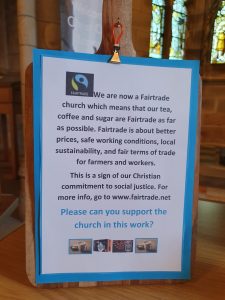
We will continue
- To engage with other churches and on Eco Church issues.
- To network with other organisations on climate change issues.
- To sell Fairtrade goods and support their campaigns.
- To recycle items from the monthly collection in church and keep up to date with recycling opportunities.
- To collect stamps for the benefit of RNIB.
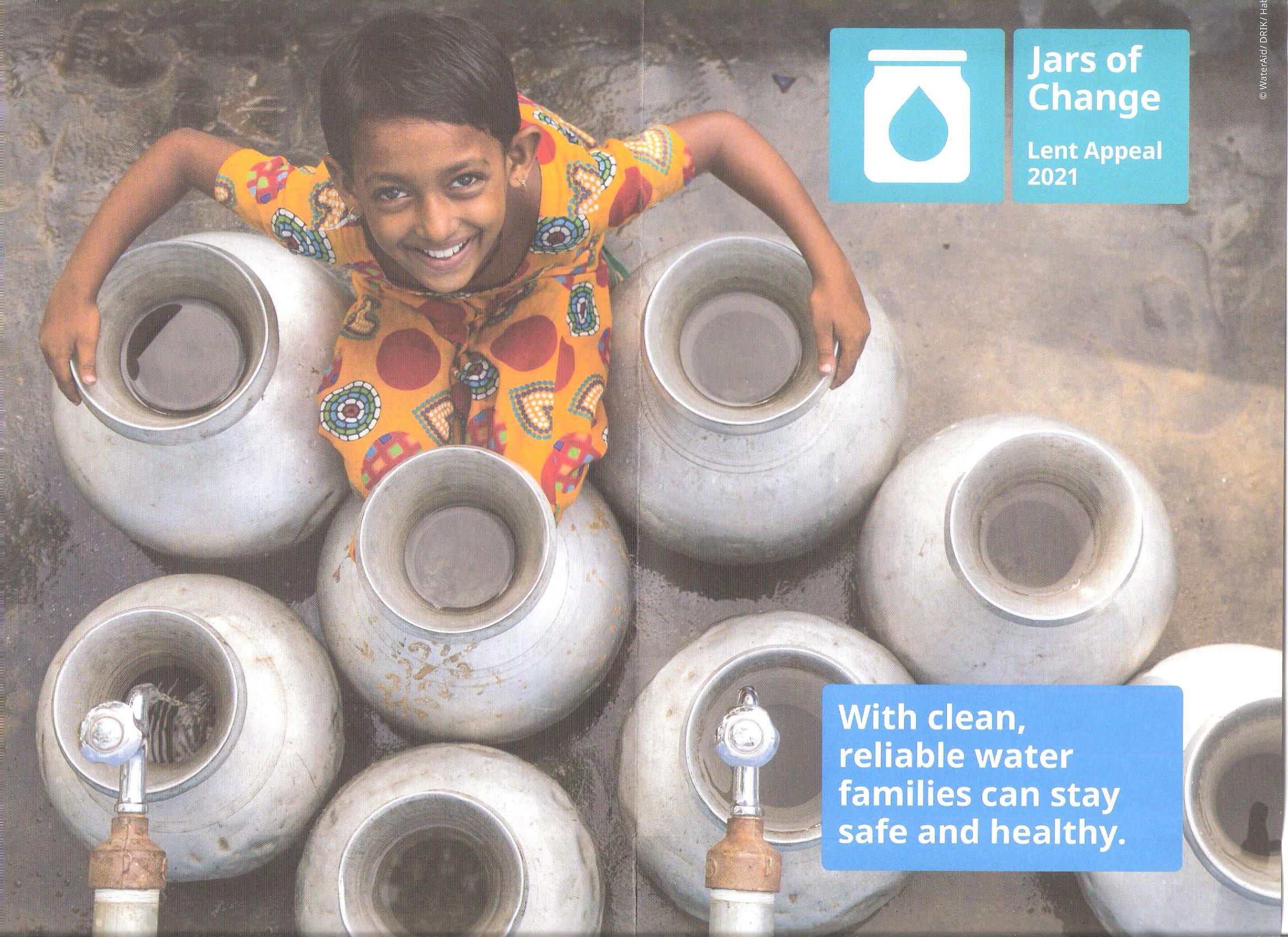
Information researched and shared
- Avoidance of single use plastic and alternatives, recycling, availability of local recycling options
- Water saving in the home and water butts for the garden
- Green gardening, avoidance of pesticides, companion planting, bee loving plants, home composting
- Information on Food Futures Community Composting scheme at Scotch Quarry.
- Green cleaning products and toiletries to buy or make.
- Avoiding products containing palm oil, without RSPO label indicating sustainable production
- The benefit of fair trade products.
- Avoidance of produce associated with deforestation and destruction of natural habitat
- Benefits of eating less meat, and purchase of organic and locally produced food.
- Examples of Vegan recipes produced in a booklet
- Measuring carbon footprint and energy reduction
- Reduction of emissions by driving less, walking, cycling or using public transport more
We will continue
- To pursue recycling opportunities and research issues as they arise.
- To invite organisations such as Food Futures, Claver Hill Community Farm, Friends of Miss Whalley’s Field to participate in Church events,
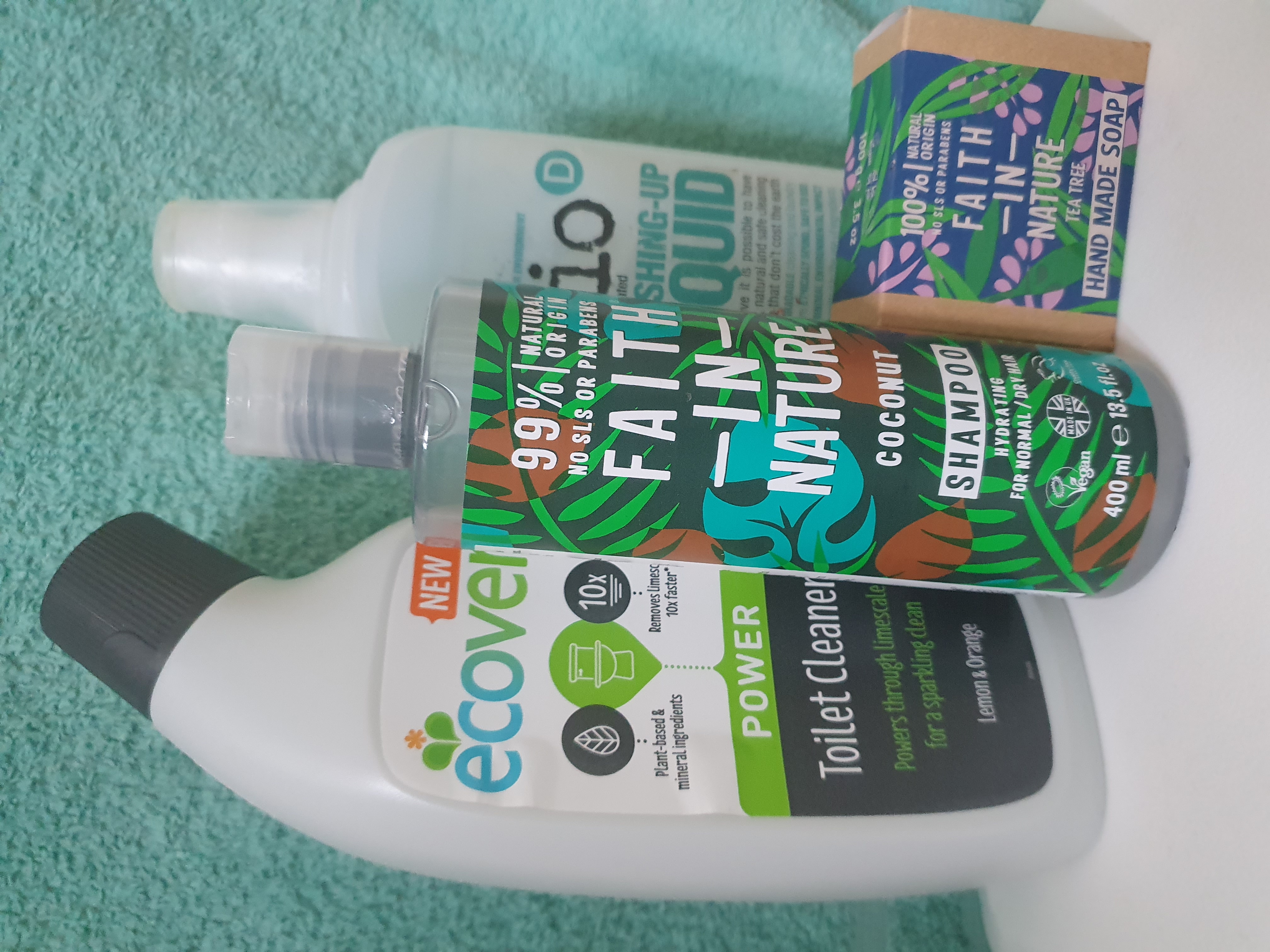 |
 |

